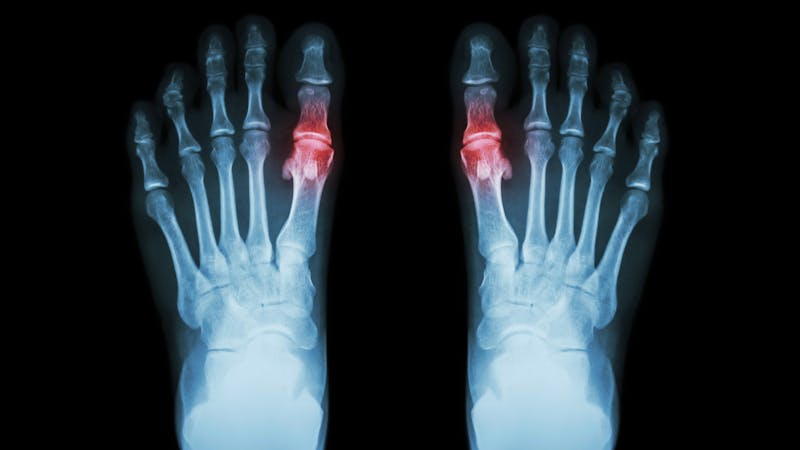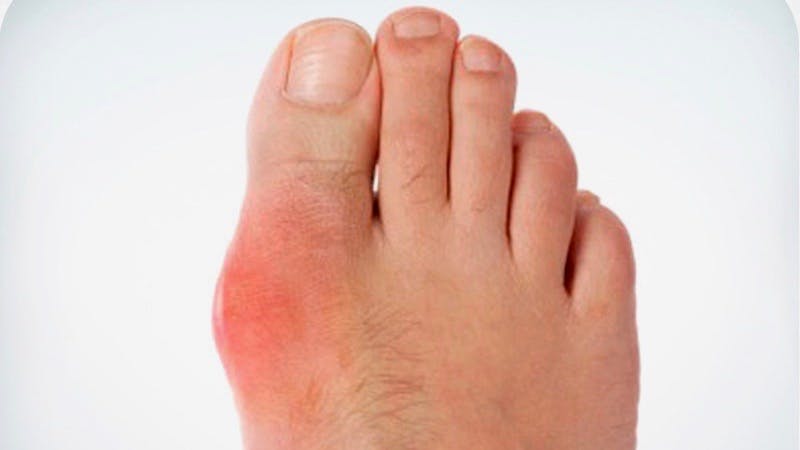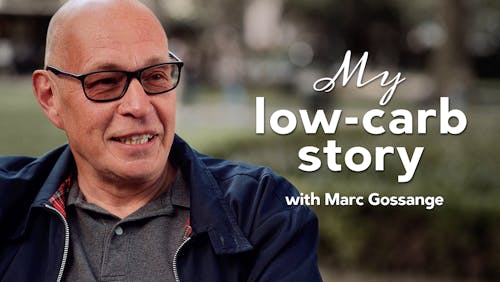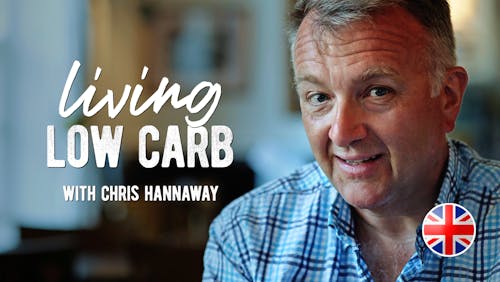Can we blame gout’s resurgence on ketosis?

“My toe hurts so bad, even looking at it is painful!” I was a third year medical student when I heard the obese 50ish-year-old man screaming in the emergency room about his pain. At first I thought he must be overreacting to get better pain medicines. But then I remembered all the textbooks mentioning how incredibly painful gout is. My attending confirmed that, yes, this was a common presentation for gout and I have never forgotten that. Gout hurts!
Traditionally, gout has been associated with the “opulence” and “indulgence” of the upper class aristocrats. Now, however, gout is an equal opportunity offender striking individuals of all socioeconomic classes.
The Cut: Why gout is making a comeback
In fact, the article in The Cut suggests a resurgence of gout not just in obese Americans, but also in young, otherwise healthy individuals who start a ketogenic diet:
Doctors largely attribute this rise to the increasing prevalence of obesity and hypertension. But Dr. Leigh Vinocur, an emergency physician, said she has also noticed a new crop of young, trim people coming into the hospital with symptoms of the disease; patients who don’t have pre-diabetes, or high blood pressure, or hypertension. She believes that this, in part, has something to do with fad diets like keto, which calls for low-carb, high-protein consumption. “Quick-fix diets like keto and paleo, where your intake is very high in fat and proteins, those can lead to gout,” she says. “It’s ironic: modern living — from the food industrial complex to those brand-new diets like keto — have led to an uptick in one of the world’s earliest diseases.”
Could this be true? Does a ketogenic diet cause gout attacks?
For starters, there are no good studies looking specifically at the incidence of gout after starting a keto diet. In fact, most nutritional studies on gout focus on the blood level of uric acid, the main component of gout crystals found in affected joints. As we have written previously, ketogenic diets may cause a short term rise in uric acid levels which may correspond with an increased risk of gout. Over the long term however, it appears that low-carb diets may reduce uric acid levels and therefore may be beneficial for preventing gout rather than causing it.
Instead, gout is most likely associated with metabolic syndrome, alcohol consumption, high fructose intake, and less likely associated with meat consumption. What did wealthy aristocrats with gout have in common besides high meat intake? They were overweight, they drank alcohol, and they ate plenty of sugar and simple carbs. Sounds a lot like our standard American eating our standard American diet.
What can conclude from the limited data we have?
- In large scale trials, gout is rarely if ever reported as a side effect of a low-carb ketogenic diet.
- There may be a very small increase in the risk of gout in the early stages of transitioning to a ketogenic diet.
- There is likely a beneficial long-term effect of preventing gout while on a ketogenic diet.
Thanks for reading,
Bret Scher MD FACC


















